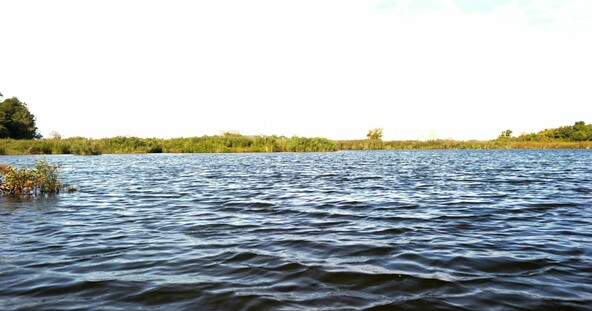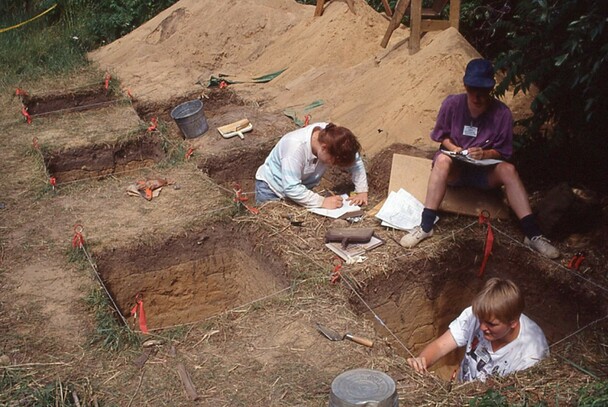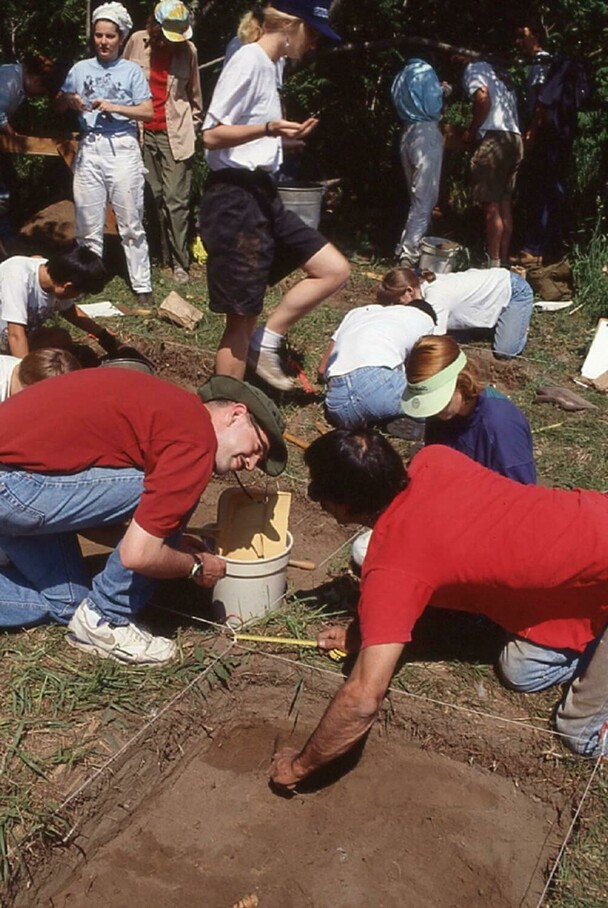
Eel River Farm Site
The Landscape
The Eel River Farm archaeological site is located along the banks of the Eel River in Plymouth, Massachusetts.
Site Overview
The Eel River Farm Site is a seasonal coastal Wampanoag village with quartz tool manufacturing areas. The site chronicles the continuity of the Wampanoag people on this landscape from the Postglacial Period through the Contact Period. The site is also geographically and temporally associated with the RM Site (C-1). The Eel River Farm Site collection consists of 37,970 objects from a total of 10 different excavation projects. The majority of the collection is Indigenous, pre-contact creations, with a smaller component of 19th-century creations. With the earliest creations dating to 10,500 years before present, the collection reflects generations of Wampanoag communities.
[Above photo captions: Photo 1: Students taking measurements and notes on the excavation units’ wall to create profile drawings during Dr. Barbara Leudtke’s archaeological survey at the Eel River Farm Site in the early 1990’s. (Archaeological Files, Series 9: Eel River Farm Site). Photo 2: Students digging excavation units for Dr. Barbara Luedtke’s archaeological survey at the Eel River Farm Site in the early 1990’s. (Archaeological Files, Series 9: Eel River Farm Site).]
Excavation History
The Eel River Farm Site has been excavated over a dozen times for multiple archaeological projects over the last 90 years. The site was initially excavated by Harry Hornblower & Jesse Brewer in the 1940s, then by Dr. Barbara Luedtke in 1991, 1992, and 1994, UMass Boston’s Fiske Center for Archaeological Research in 2006, The Public Archaeology Laboratory in 2009 & 2019, and Dr. Kathryn Swanson in 2016. The Eel River Farm Site is a National Register eligible site.
Interested in Learning More?
Please contact the Collections Manager, Annie Greco, at agreco@plimoth.org.

